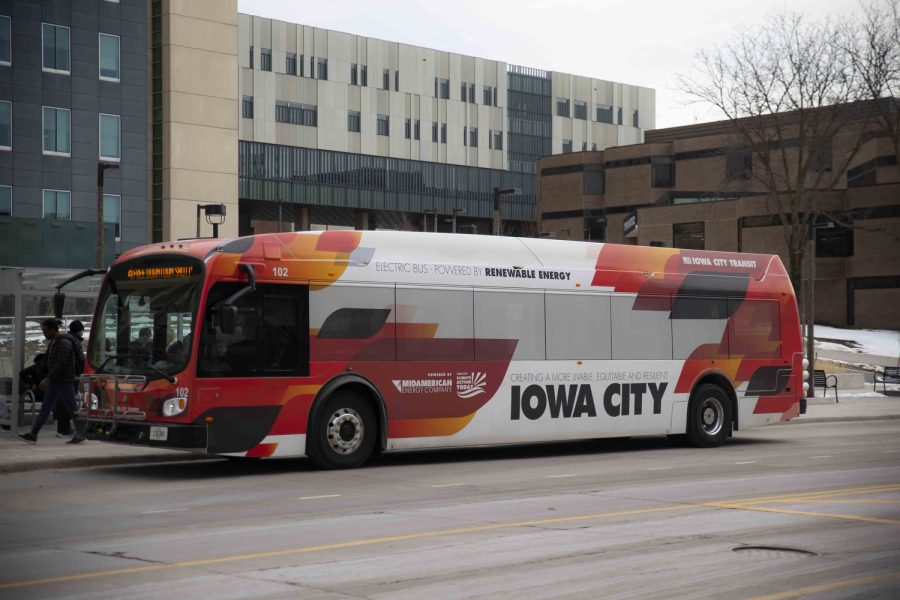Dubuque will welcome state’s third air-bulance service in 2016.
By Thomas Ackerman
[email protected]
Helicopter ambulance services can mean life or death for many people living outside major cities who often need great medical assistance.
Mercy Hospital in Dubuque will unveil the state’s third helicopter service, AirCare 3, in early 2016 in conjunction with University of Iowa Hospitals and Clinics.
Joshua Stilley, a UI clinical professor of emergency medicine and the medical director of AirCare, looks forward to benefiting surrounding areas with the extended treatment area.
“[The Dubuque area] has more limited access to trauma centers and stroke centers,” he said. “Having a helicopter there will … decrease the time it takes to get to a major facility.”
AirCare 1 began in 1979, making it the 11th helicopter service in the nation and the first in the state.
AirCare 2 in Waterloo followed in 1988, leaving Dubuque to make strides in building another service station for the community.
“It’s great to extend the services,” Stilley said.“Dubuque is already a big service referral area for us and being able to betterhelp patients that are already coming to us is a big benefit.”
People who have experienced the transport aid said they know just how important it can be when further assistance isn’t available locally.
“My daughter, who was 8 years old at the time, was hit by a large pickup,” Laura O’Neal of Fort Dodge said. “She was unconscious when I arrived at the scene, which was about a block and a half away from home.”
Her daughter, Lilly, was playing with friends when she was struck by the vehicle. The trauma team at the regional care center, Trinity Hospital, didn’t have the necessary means to help her.
“They right away decided that she was going to need to be seen at a major trauma center,” O’Neal said. “The closest one was Blank Children’s Hospital in Des Moines.”
The crew flew O’Neal and her daughter to the hospital in about 30 to 35 minutes, O’Neal said.
“She was losing blood … on the flight they were watching her vitals carefully,” O’Neal said. “I’m afraid if they transported her in any other way, she might not have made it.”
UIHC spokesman Tom Moore emphasized the importance of the “golden hour,” referring to a victim’s chances for survival, which are greatly increased if treated within 60 minutes. The program thrives on speed and is fit for the purpose.
Because the base will be in Dubuque, employees will be hired by Mercy Hospital; UIHC and Mercy are in partnership and working collaboratively on the program.
The helicopter itself and the pilots will be contracted to Air Methods, a national organization for medical flying services. The medical crews will be directed by UI AirCare, Stilley said.
While the company was once bought out. UIHC has contracted the service to the same provider for 30 years, Stilley said. The original service was labeled Rocky Mountain Helicopters.
The contractor is then regulated by the Federal Aviation Administration and holds an airline-operations certificate that allows the company to fly in commercial operations, Stilleysaid.
“We do a bidding process every few years and Air Methods has continued to be an excellent partner,” Stilley said.
The medical aspect of the program is up to the hospitals, making necessary hirings the priority at this time.
“[We’re] currently working to get good paramedics and nurses and recruit qualified applicants for the positions — that’s the biggest thing,” Stilley said.
The applicants are required to have three years of ground ambulance experience and a critical-care paramedic’s certification; they will then go on to train for two to three months to prepare for the job.
Financially, Stilley couldn’t note the details, saying he is “not able to talk about the specifics of the contract.”
“Each entity does have some financial responsibility for bringing this online,” he said. “Everyone has some shared financial responsibility.”
However, few structures will require to be constructed, with a security fence around the helicopter and a fuel facility being among the few.
For communities such as Fort Dodge, help is on the way for better treatment in Iowa.
“When people are in places that are hard to get to or [in] situations when time is a huge factor … there’s absolutely nothing that can save lives except for this,” O’Neal said.







